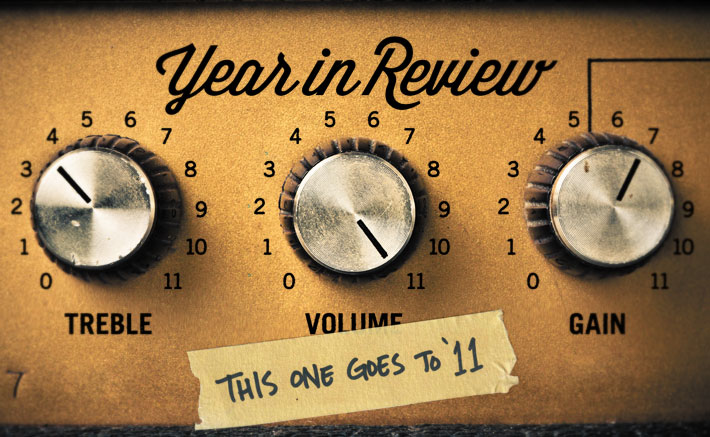
This is the hell in which Mike has been living for quite some time now. These boxes are filled with CDs. (Not *these* boxes, exactly, but boxes just like these.)
If you know me, then you know I am all about nurturing the soul. “That Mike,” you probably say. “He is all about nurturing the soul.” Or something like that. Maybe not those exact words. Right? No? Anyway, you know what is especially good for the soul? Moving. Packing up your entire home and all your belongings and moving from the place you live to another place, a new place. A place that is totally alien to you. A place to which you are totally alien. A place that is probably—not definitely, but probably—haunted. Haunted by ghosts. Or possessed by demons. Azazel, Jezebeth, Thamuz, what have you. That is the only way, really, you can truly nurture your soul. Right? My analyst tells me that moving is one of the most stressful experiences a person can endure, but I tell him he’s got it all wrong.
“Moving,” I tell him, “is healthy. Moving is good for the soul.”
Then I collapse into a twitching, trembling fetal ball, and sob for the next 45 minutes.
So, anyway, did I mention that I just finished moving? No? Well, I did! Finish moving, I mean. And man, let me tell you, it was cleansing. I got to sift through decades’ worth of accumulated belongings, reliving some of the worst moments of my childhood, my adolescence, my post-adolescence, my college years, my post-college years, my “blue” period, my early career, and so on. You see, I have kept plenty of souvenirs from these traumatic eras, and they have built up, collected dust, been stuffed into boxes, boxes that have grown especially heavy, especially unwieldy.
“Still and all,” I think to myself, as those old wounds are re-opened, “I should keep this stuff. You never know what it’ll be worth on eBay.”
Of course, the very heaviest boxes—packed with the very heaviest memories—are those stowed into the deepest recesses of the least-accessible closets. Is this intended as some clever metaphor? Some literary device wherein physical baggage is used to represent psychological baggage? Perhaps, on some level, it is. But on another, more factual level, no, it is not. Because those heaviest boxes do indeed exist, and I have been carrying them from place to place for-effing-ever now. They are very real, and very annoying. They are filled with, yes, compact discs—vestigial objects of a bygone era; objects of which I still have many—and they are dragging me down.
A few notes regarding compact discs:
(1) That they are called “compact discs,” in this historical period, is laughable, as they are anything but compact. They are big and unwieldy. My iPod, which currently houses 16,191 songs (and the first season of Sons of Anarchy), is about one-sixth the size of the Joy Division Heart and Soul CD box set, on which there are 81 songs.
(2) Along with being big and unwieldy, compact discs are also useless. There is no justification for their existence. Superior sound quality? Eh, I can’t hear it. Liner notes? That’s what Wikipedia is for. Album art? I can see album art on my iPod, and besides, what percentage of album art is actually worth seeing—five? Maybe?—and what percentage is bland, generic and/or unlovable Photoshoppery?
(3) Along with being big, unwieldy and useless, compact discs are also utterly without monetary value. Used-record stores aren’t buying, and while selling CDs piece-by-piece in Internet auctions may be a profitable hobby for unemployable dropouts looking for meth money, anyone who works more than 20 hours a week will never find the time to engage in such life-draining tedium.
Just the same, I have been lugging around my CD collection—from one apartment to another—since graduating from college in 1997.
However, that does not tell the whole story. Funny thing: For all intents and purposes, my actual CD collection stopped growing in 2005, when I realized I would never actually need hard copies of music anymore. So if you were to leaf through all those boxes of CDs—approximately 4,000 discs in all—you would find they stop dead, chronologically speaking, with, like, Common’s Go. And if you were a historian—perhaps an archeologist of some sort, from the distant future, with a very patchy understanding of the late-20th/early-21st centuries—you might wonder, to yourself, “What happened to this person? Why did he abandon music at this exact juncture? Was it Common’s Go? Did that particular compact disc offend him so deeply that he could not progress any further?”
And you might imagine yourself to have reached a perfectly viable conclusion.
But you’d be wrong—because I really liked Common’s Go!
And also because technology changed, and with it, so too did I. So why do I hold on to these countless tons of useless plastic? What is it I’m holding on to? Every day my CD collection grows older and less reflective of my tastes; every time I update my iPod, it is with music that I will never own in compact disc form. Those boxes are not just bulky, they are redundant, atavistic, pointless, unnecessary.
But here I am, still moving, still trying to find ways to cleanse myself. And still carrying them around.
Talk about ghosts, man. Talk about demons





